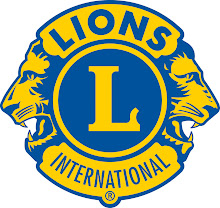The Lions’ new international president, Mahendra Amarasuriya, a banker and corporate leader, is from a family with deep ties to the government and business in Sri Lanka.
So the demands of leadership aren’t new to him, nor is organizational change. He is distinctly forward-looking, even visionary, according to those who know him well. Facing a changing world and needing to adapt, Lions welcome a new president with experience in managing people and managing change.
In the 1980s, Amarasuriya could see no reason why membership was closed to women, so he bucked tradition and proposed a resolution at a district convention to admit women as Lions. The resolution was defeated, but Amarasuriya’s spirit of innovation remained intact. He carries it with him to this day and encourages Lions to do likewise.
“I plan to take a new look at the organization, bring new approaches and really push the organization forward,” he says.Amarasuriya learned the value of change from his own experiences in his club. In 1967 he became a charter member of the Galle Lions Club after a business colleague asked him to join. The club adopted an impoverished village and he literally rolled up his sleeves to get a job done.
“We were digging for a building project—a bathing well—and some of the people were watching us skeptically. Well, we got it done by lunch time and we had convinced the villagers and ourselves. That was probably the first instance I realized the importance of Lionism and the powerful force it can be,” he says.
His exposure to the needs of others made him particularly sympathetic to children. He supported Leo clubs in schools and, as district governor, helped develop the Youth Service Associations, encouraging citizenship, environmentalism and an overall sense of responsibility among youth. Approximately 125 associations, based mostly in schools, were formed.
Born in Colombo, the capital of Sri Lanka, Amarasuriya was one of seven children. His grandfather was one of the first Sri Lankans to be a tea planter and his father was president of the senate of Sri Lanka (then known as Ceylon). His mother was his primary influence. “This business of giving, being charitable and looking after people, probably came from her,” he saysAmarasuriya studied botany at the University of Ceylon, where he met an attractive classmate named Kushlani. “He seemed so cool and calm and so different from the people I knew at home,” she recalls. Amarasuriya knew she was a good match for him. “She is a very intelligent, very friendly person who can establish a rapport with almost any person at any level.” They married after each graduated.
Amarasuriya took a job with a trading company. His career quickly blossomed and he became one of the nation’s business leaders. He serves as chairperson of the Commercial Bank of Ceylon and formerly served as chairperson of United Motors and of the International Chamber of Commerce in Sri Lanka.
According to a cover story in Lanka Monthly Digest, a business magazine, Amarasuriya “epitomizes an image which has become a rarity in the nation’s beleaguered business and political landscape — one in which professionalism and ethics are paramount.”People trust him and know where they stand with him, say his colleagues. “He has been successful primarily because his integrity is unquestionable and he is honest to a fault,” says Ken Balendra, a business colleague.
Actively supported by Amarasuriya in her extensive charitable work with physically and mentally challenged children through Lions clubs, Kushlani says, “I always felt that although he worked for a private sector organization, he was not a typical private sector person.”
When Kushlani’s niece lost her mother, the Amarasuriyas took her in. Says Kushlani, “She was 14 when she came to us from England. Totally new culture, environment. No friends. Adolescence. So it was a very difficult time for her. If I didn’t have his patience and compassion, I don’t think I could have done it.”
Forty thousand Sri Lankans died and 120,000 homes were destroyed during the 2004 tsunami. Lions went right to work, providing food and shelter. Helped by donations from Lions worldwide, Lions in Sri Lanka also partnered with LCIF to build 1,459 homes and provide job training. “The people have hope for the future now,” says Amarasuriya.
The tsunami demonstrated the indispensability of Lions.
As international president, Amarasuriya carries a renewed determination to ensure the strength and growth of Lions clubs. His program, centered on the theme “Challenge to Change,” acknowledges the challenges facing Lions and provides solutions. “Without this internal change, we will no longer be relevant to the 21st century,” he says. “We have to be flexible so that people are not bogged down by bureaucratic procedures, by protocol, and by pomp and pageantry. Young people appear to be more interested in hands-on projects and not spending their time at meetings. That is why I challenge the Lions to change internally so that we will establish a different image – a dynamic vibrant 21st century organization.”
Subscribe to:
Post Comments (Atom)





No comments:
Post a Comment